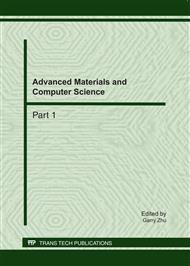p.1412
p.1418
p.1423
p.1429
p.1435
p.1440
p.1447
p.1451
p.1458
Analyzing Manufacturer’s R&D Equilibrium in Defense Procurement
Abstract:
We formulate the model of R&D investment scale adjustment of defense procurement by applying game theory and contest theory and study the equilibrium of manufacturers’ R&D investment decision-making in defense procurement. We explore mainly the influence of valuation of monopolistic contract and differences among manufacturers’ abilities on investment. The conclusion shows that manufacturers’ investment equilibrium of R&D projects is what the government expects under certain conditions, however, manufacturers’ abilities effect on the investment equilibrium and makes it deviate from the government expectation. Therefore, the government must keep practically manufacturers’ anticipation about the monopolistic contact being consistent with government’s and set basic admission criterion to enable manufactures’ ability well-matched to induce the manufacturers’ investment decisions to the investment equilibrium that it desired.
Info:
Periodical:
Pages:
1435-1439
Citation:
Online since:
April 2011
Authors:
Keywords:
Price:
Сopyright:
© 2011 Trans Tech Publications Ltd. All Rights Reserved
Share:
Citation:


